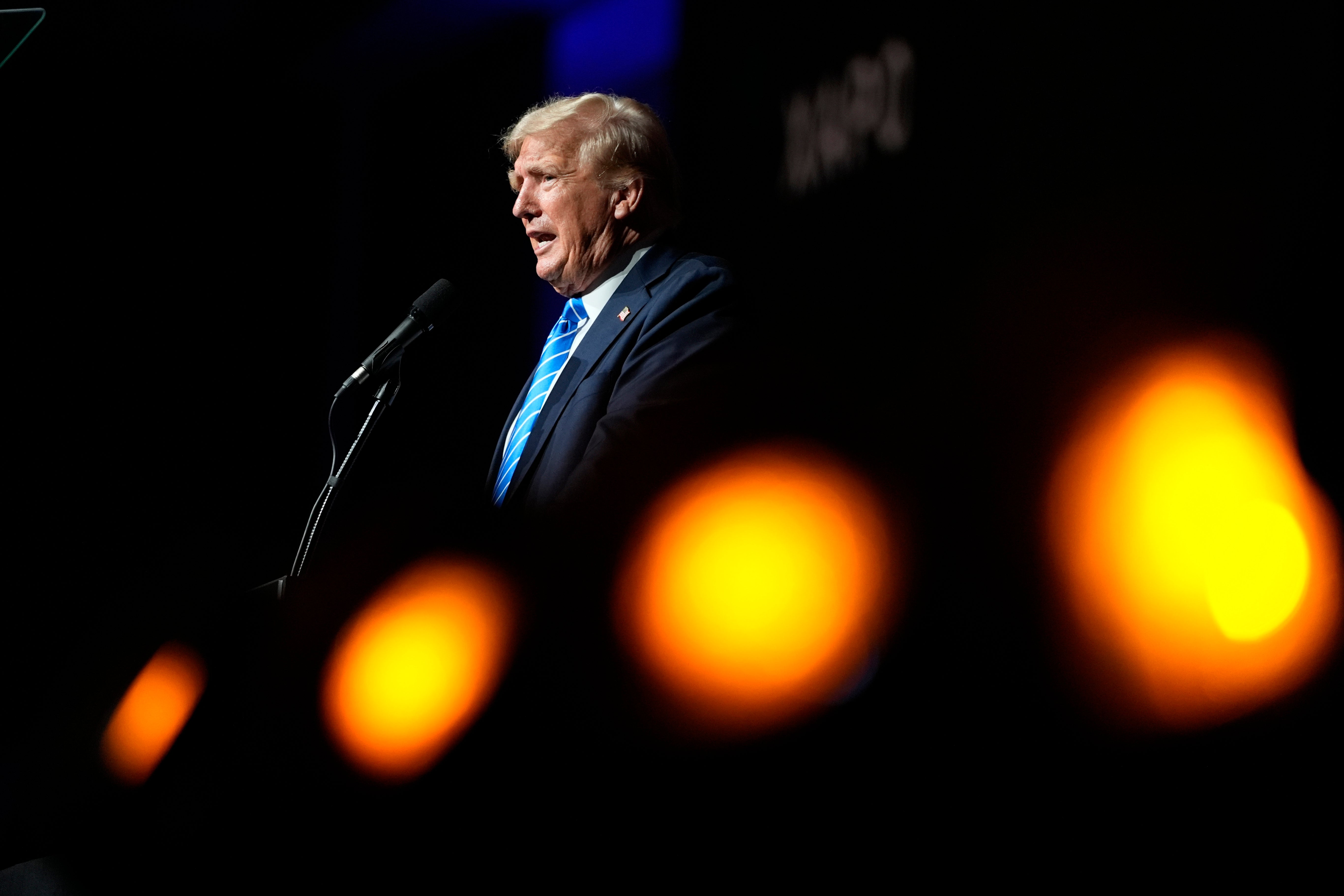Mea Culpa: putting Donald Trump’s suggestion in the bin
Americanisms and other confusions in last week’s Independent, reviewed by John Rentoul


I once compiled a Top 10 “British and American Words with Overlapping, but Dangerously Different, Meanings”. This included “momentarily”, which means “for a short time” in British English, but “at this time” in US English; and the verb “to table”, which in Britain means to propose a subject for discussion, whereas in the US it means to postpone discussion on the subject.
A similar confusion tripped us up a couple of times recently. After Joe Biden announced that he was isolating with Covid-19, we reported: “Mr Trump and his allies have thrown out baseless arguments that he [Mr Biden] was never sick with Covid after all.”
For most British readers, that would mean that Trump and co had dismissed the baseless arguments – “thrown out” meaning “put them in the bin”. In US English, however, the main meaning of “throw out” is “put out into the world for consideration”. This is familiar in Britain, presumably via corporate jargon, but only in the form, “I’m just throwing this out there”, which is hardly the language of news reports.
A few days later, we did it again: “Another figure thrown out by the government is the hiring of 300 new planning officers.” We changed it to “put out”.
Colloquialism: Mark Ogilvie objected to a picture caption which said that Ismail Haniyeh, the Hamas leader, had been “taken out”. The word we were looking for is “killed”.
Decompress: We compressed this headline too much: “Police investigate claim tourist gang raped in Paris.” John Harrison wrote to say that he had formed “tourist gang” as a noun in his mind before he got to the verb. “I’m sure the cost of adding ‘was’ after ‘tourist’ wouldn’t have blown the headline word budget,” he said. I am sure it wouldn’t.
Mixed drinks: We used an unusual construction on the business pages the other day: “Diageo, the company that’s products include Gordon’s Dry Gin, Guinness and Baileys, saw profits slump as a weak performance in Latin America continued to drag.” Roger Thetford wrote to say that he can see what happened here: “the company whose products…” would be wrong, because a company is not a person, but “that’s” is even more wrong. Perhaps we should have said “the company that produces…”
Recorrect: In an opinion article about housebuilding targets, we said that “some local authorities have been so incalcitrant about creating realistic local plans that action by the centre has become essential”. The usual word is “recalcitrant”, because it comes from Latin recalcitrare “to kick back (of horses)”, in which re– means back, and calcitrare means kick. “In–”, which indicates the negative, doesn’t work.
Spelling C: Your occasional reminder that the BBC licence fee is spelt with a “c” rather than an “s” because in British English licence is the noun and license the verb.
Rude mechanicals: A caption on a photo illustrating an article about cancelling part of the HS2 project said: “A boring machine near Old Oak Common…” Philip Nalpanis thought this was unnecessarily judgemental. The photo was of a tunnel boring machine, which a lot of people find very interesting.
Join our commenting forum
Join thought-provoking conversations, follow other Independent readers and see their replies
Comments
Bookmark popover
Removed from bookmarks